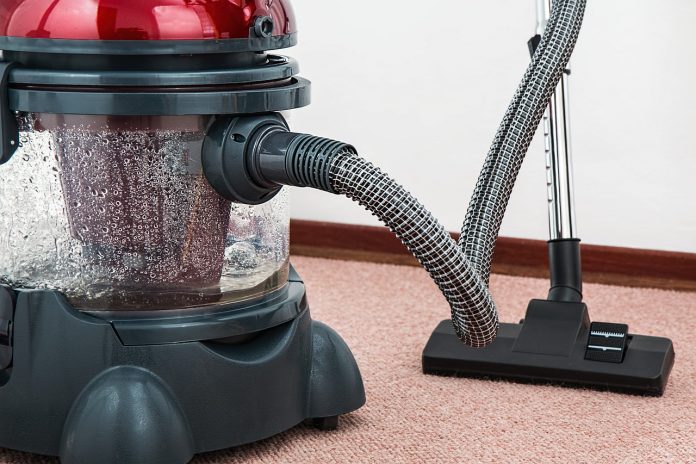When I hear someone talking about a vacuum I get disproportionately excited and start asking them questions about the fundamental nature of the universe. When I realize my mistake, I’ll try and save myself by protesting that vacuum cleaners aren’t a vacuum at all, just a relatively small suction effect. But it’s too late; they’ve seen through my visage — I am not of their kind, I am a man of science. A physicist.
But it did get me thinking — if we really had a vacuum vacuum, how much would it suck? “Now hold on Mike,” you might say, “can’t you always just suck more?” Well the answer to that, unless you’re from Transylvania, is no. Suction forces don’t actually exist. Now, before you drink some pop out of a straw to disprove me, hear me out. Actually, scratch that, do drink through a straw — it’s a useful example. Your lungs decrease the pressure in your mouth just a little, so the air pressure outside pushes on your soda a little more than the air pressure remaining in your lungs, driving the sugary beverage up the straw, and into your mouth. Now that you are properly informed, I’ll go back to using the word suction, and we can go on living our normal lives. Oh, and also, for simplicity purposes, we’ll assume the vacuum begins right at the suction-y end of the cleaner, so we don’t have to deal with any messy fluid dynamics problems as the air travels down the hose.
First things first, our vacuum sucks up a lot of air. If the nozzle on the end of our true vacuum cleaner is as small as the wimpy suction cleaner I have at home, it will still guzzle up over 200 litres of air every second, with the air travelling into the one true vacuum at the speed of sound. Due to the pressure decreasing as the air nears the void that is our vacuum, that speed of sound is actually slightly less than the regular speed of sound. But why limit ourselves to a tiny opening? We have the power of an unlimited void of nothingness available to us! If you increase the size of the opening so that it’s as big as a basketball, I would start thinking about putting a caution sticker on the vacuum, although I’m not sure what I’d write on it. Papers left lying around in the room you are vacuuming in will probably begin to get sucked up. So will blankets, cats, and really anything small that gets within a couple feet of the opening. If you left a fairly regular-sized window open in the room you are vacuuming, and all other doors and windows are shut, the wind coming in through your window would reach what the Beaufort scale refers to as “near gale” at 60 km/h.
An easy way to test the strength of a vacuum cleaner is to turn it on, and place it against a wall to see if it can hold itself up just via suction. Inside of my house, the vacuum actually wouldn’t, because the wall would be sucked into the vacuum. Not the entire wall, mind you (at least, not yet), but placing the vacuum against a solid object exerts about 5000 newtons of force on the wall, or about the weight of six or seven Isaac Newtons, all pressing down on the same spot. The drywall would cave inwards, crumbling into the abyss. Regular everyday objects like laptops, board games, and books would also fold themselves up and get sucked in, and unsurprisingly, it would begin to be dangerous to people, too. In addition to probably giving the worst hickey of all time, it would take one of the strongest people in the world to remove the vacuum from someone’s body.
Now where is that off switch — whoops, I accidentally made it 10 times wider. The now two and a half metre in diameter gateway to oblivion is too big to fit in my hallway. The initial winds are now six times over a hurricane force — they slow for but a brief moment as walls and ceilings resist the mighty portal — for likely only a fraction of a second before the pressure of the outer world causes our house to implode, leaving a foundation, and a few pieces of wall that managed to resist the void. I think the caution sticker should say: “Caution: vacuum.” We’ll get the memo.


